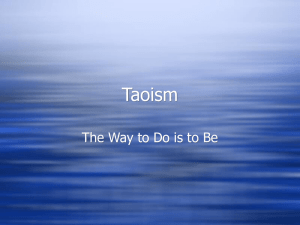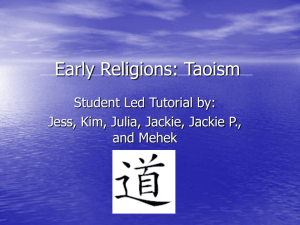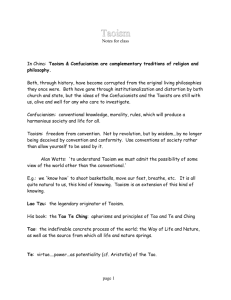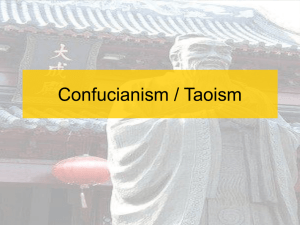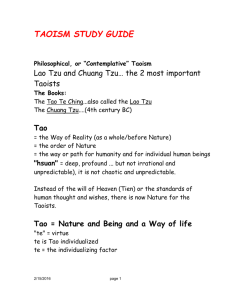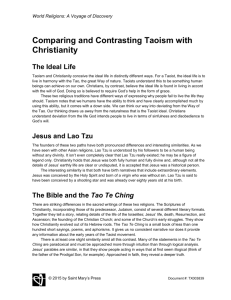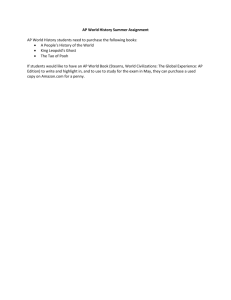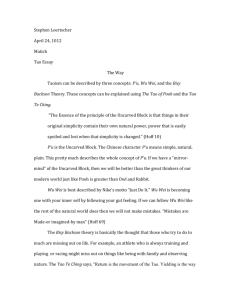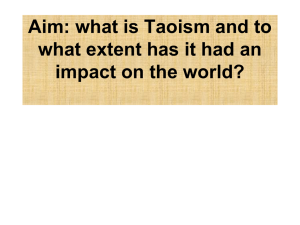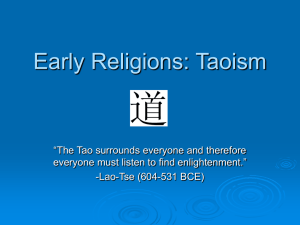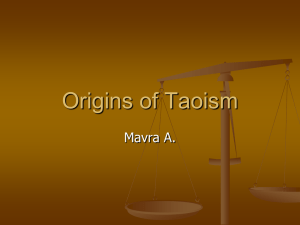TAOISM
advertisement
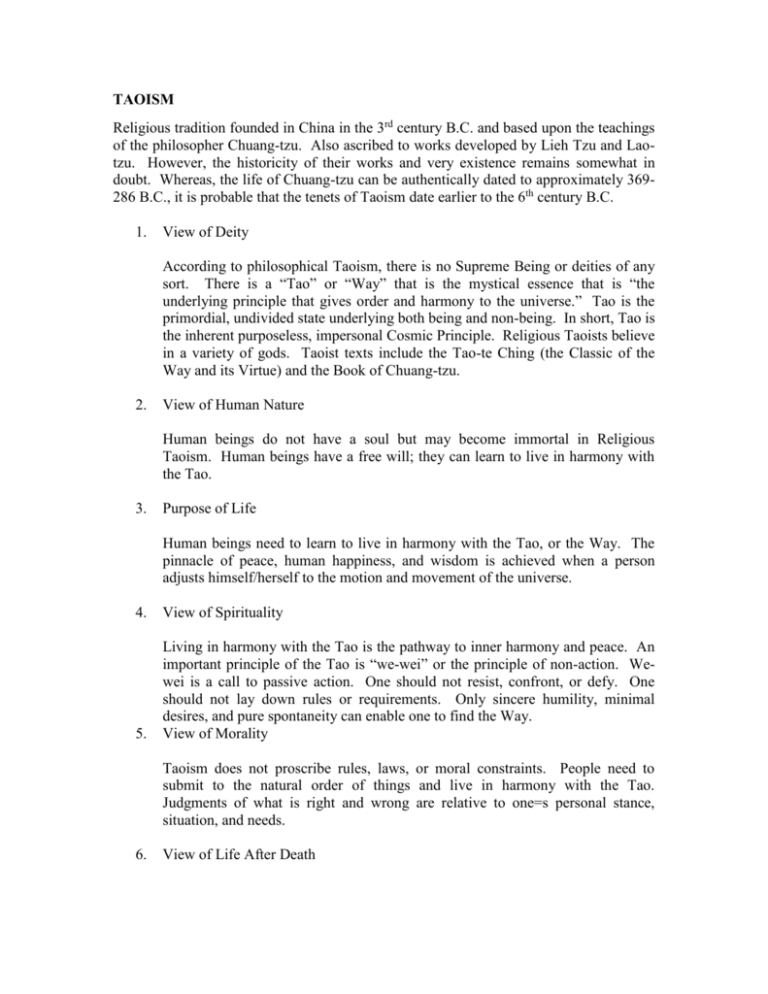
TAOISM Religious tradition founded in China in the 3rd century B.C. and based upon the teachings of the philosopher Chuang-tzu. Also ascribed to works developed by Lieh Tzu and Laotzu. However, the historicity of their works and very existence remains somewhat in doubt. Whereas, the life of Chuang-tzu can be authentically dated to approximately 369286 B.C., it is probable that the tenets of Taoism date earlier to the 6th century B.C. 1. View of Deity According to philosophical Taoism, there is no Supreme Being or deities of any sort. There is a “Tao” or “Way” that is the mystical essence that is “the underlying principle that gives order and harmony to the universe.” Tao is the primordial, undivided state underlying both being and non-being. In short, Tao is the inherent purposeless, impersonal Cosmic Principle. Religious Taoists believe in a variety of gods. Taoist texts include the Tao-te Ching (the Classic of the Way and its Virtue) and the Book of Chuang-tzu. 2. View of Human Nature Human beings do not have a soul but may become immortal in Religious Taoism. Human beings have a free will; they can learn to live in harmony with the Tao. 3. Purpose of Life Human beings need to learn to live in harmony with the Tao, or the Way. The pinnacle of peace, human happiness, and wisdom is achieved when a person adjusts himself/herself to the motion and movement of the universe. 4. View of Spirituality 5. Living in harmony with the Tao is the pathway to inner harmony and peace. An important principle of the Tao is “we-wei” or the principle of non-action. Wewei is a call to passive action. One should not resist, confront, or defy. One should not lay down rules or requirements. Only sincere humility, minimal desires, and pure spontaneity can enable one to find the Way. View of Morality Taoism does not proscribe rules, laws, or moral constraints. People need to submit to the natural order of things and live in harmony with the Tao. Judgments of what is right and wrong are relative to one=s personal stance, situation, and needs. 6. View of Life After Death The founder of philosophical Taoism did not believe in immortality; when a person dies he or she passes into non-being and individuality is dissolved. Religious Taoists believe in immortality. Those who become immortal were thought to dwell on an island of paradise called “P’eng-lai.”

